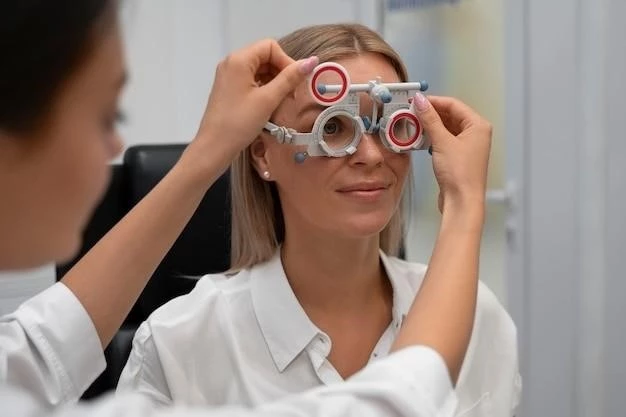Overview of Corneal Cerebellar Syndrome
Corneal cerebellar syndrome is a rare neurological condition characterized by a combination of corneal dystrophy and cerebellar ataxia․
Definition and Background
Corneal cerebellar syndrome is a rare neurological disorder characterized by the simultaneous presence of corneal opacity and cerebellar ataxia․ The condition typically manifests with visual impairment due to corneal abnormalities and movement coordination difficulties caused by cerebellar dysfunction․
Symptoms and Diagnosis of Corneal Cerebellar Syndrome
Common symptoms include visual disturbances from corneal opacities and problems with coordination․
Common Symptoms
The common symptoms of corneal cerebellar syndrome include blurred vision, eye discomfort, unsteadiness, and difficulty with fine motor skills․ Patients often experience a progressive decline in both visual acuity and coordination, which can significantly impact their daily activities and quality of life․
Diagnostic Procedures
Diagnosing corneal cerebellar syndrome typically involves a comprehensive eye examination to assess corneal abnormalities and neurological evaluations to detect signs of cerebellar dysfunction․ Additional tests such as genetic testing, imaging studies like MRI, and specialized nerve and muscle function tests may be conducted to confirm the diagnosis and evaluate the extent of the disease․
Treatment Options for Corneal Cerebellar Syndrome
Medication and surgical interventions are utilized to manage symptoms and improve quality of life․
Medication Approach
Medication for corneal cerebellar syndrome aims to alleviate symptoms such as visual disturbances and movement difficulties․ Patients may be prescribed medications to manage corneal issues, improve coordination, and address associated conditions․ Collaborative care with healthcare providers is essential to tailor the medication regimen to individual needs and monitor treatment efficacy․
Surgical Interventions
Surgical interventions for corneal cerebellar syndrome may involve procedures to address corneal dystrophy or surgical interventions to manage symptoms related to cerebellar dysfunction․ Corneal transplant surgery can be considered for advanced corneal abnormalities, while neurosurgical procedures may be performed to alleviate pressure on the cerebellum․ The decision for surgery is individualized based on the specific needs and conditions of each patient, and thorough evaluation by a multidisciplinary team is crucial․

Research Advances in Corneal Cerebellar Syndrome
Current studies explore novel treatment approaches and potential breakthroughs in understanding the disorder․
Current Studies and Findings
Ongoing research in corneal cerebellar syndrome focuses on identifying genetic and molecular mechanisms underlying the condition, developing targeted therapies to address specific symptoms, and investigating potential gene therapies․ Recent studies have shown promise in enhancing our knowledge of the disease processes and paving the way for innovative treatment strategies․
Potential Future Breakthroughs
Future breakthroughs in corneal cerebellar syndrome research may involve precision medicine approaches tailored to individual genetic profiles, the development of gene-editing technologies for therapeutic interventions, and advancements in neuroimaging techniques for early detection and monitoring․ Collaborative efforts among researchers, clinicians, and patients are essential to drive innovation and improve outcomes for individuals with this rare neurologic disorder․
Genetic Causes of Corneal Cerebellar Syndrome
Identification of genetic mutations and their impact on disease progression is crucial․
Identification of Genetic Mutations
Research in corneal cerebellar syndrome focuses on identifying genetic mutations that contribute to the development of the disorder․ Advanced genetic testing methods are essential for pinpointing specific gene alterations associated with the condition, providing valuable insights into disease mechanisms and potential targets for therapeutic interventions․ Understanding the genetic landscape of corneal cerebellar syndrome is key to personalized management strategies and future treatment advancements․
Impact on Disease Progression
Understanding the impact of genetic causes on disease progression in corneal cerebellar syndrome is essential for predicting clinical outcomes, developing targeted therapies, and improving patient care․ Genetic mutations can influence the severity and rate of symptom development, guiding healthcare providers in implementing personalized treatment plans and monitoring disease progression over time․ By unraveling the genetic underpinnings of the condition, researchers can enhance disease management strategies and potentially alter the course of the syndrome for affected individuals․
Case Studies of Patients with Corneal Cerebellar Syndrome
Exploring individual case presentations and treatment outcomes can provide valuable insights․
Individual Case Presentations
Examining individual case presentations of patients with corneal cerebellar syndrome offers a detailed understanding of symptom progression, treatment responses, and challenges faced․ These case studies contribute to the collective knowledge of healthcare professionals, outlining diverse clinical manifestations and highlighting the importance of personalized care strategies tailored to each patient’s unique needs․ By analyzing individual cases, insights into the management and prognosis of corneal cerebellar syndrome can be gleaned, aiding in the delivery of optimal patient care․
Treatment Outcomes
Evaluating treatment outcomes in patients with corneal cerebellar syndrome is essential to assess the effectiveness of interventions and their impact on symptom management and disease progression․ Monitoring treatment responses provides valuable data on the efficacy of medication and surgical approaches, guiding adjustments to care plans and optimizing patient outcomes․ By tracking treatment outcomes, healthcare providers can refine therapeutic strategies, enhance quality of life for individuals with the syndrome, and contribute to ongoing advancements in the field․
Lifestyle Management for Corneal Cerebellar Syndrome
Dietary and exercise recommendations, along with therapeutic activities, are essential components․
Dietary and Exercise Recommendations
Implementing a well-balanced diet rich in nutrients and engaging in appropriate exercise routines can support overall health and well-being in individuals with corneal cerebellar syndrome․ Adequate nutrition and regular physical activity play a pivotal role in managing symptoms, promoting mobility, and enhancing quality of life․ Working closely with healthcare professionals to tailor dietary plans and exercise programs to individual needs is crucial for optimizing health outcomes and maintaining functional independence․
Therapeutic Activities
Incorporating therapeutic activities, such as physiotherapy, occupational therapy, and speech therapy, can help individuals with corneal cerebellar syndrome improve coordination, fine motor skills, and communication abilities․ These tailored interventions aim to enhance functional capabilities, promote independence, and optimize overall quality of life․ Collaborating with a multidisciplinary team to design personalized therapeutic plans is essential for addressing individual needs and maximizing the benefits of therapy in managing the challenges associated with the syndrome․
Support Resources for Individuals with Corneal Cerebellar Syndrome
Organizations and counseling services offer vital support for individuals managing the syndrome․
Organizations and Support Groups
Accessing dedicated organizations and support groups can provide individuals with corneal cerebellar syndrome valuable assistance, information, and a sense of community․ These resources offer emotional support, educational materials, and opportunities to connect with others facing similar challenges․ By engaging with these organizations, individuals can access a network of support, gain insights into coping strategies, and enhance their overall well-being while navigating the complexities of the syndrome․
Counseling and Mental Health Services
Accessing counseling and mental health services is vital for individuals with corneal cerebellar syndrome to address emotional challenges, anxiety, and depression that may arise․ Professional support from mental health experts can help individuals navigate the psychological impact of the condition, develop coping mechanisms, and enhance their overall well-being․ These services play a crucial role in providing emotional support, guidance, and a safe space to discuss concerns related to living with a rare neurologic disorder like corneal cerebellar syndrome․
